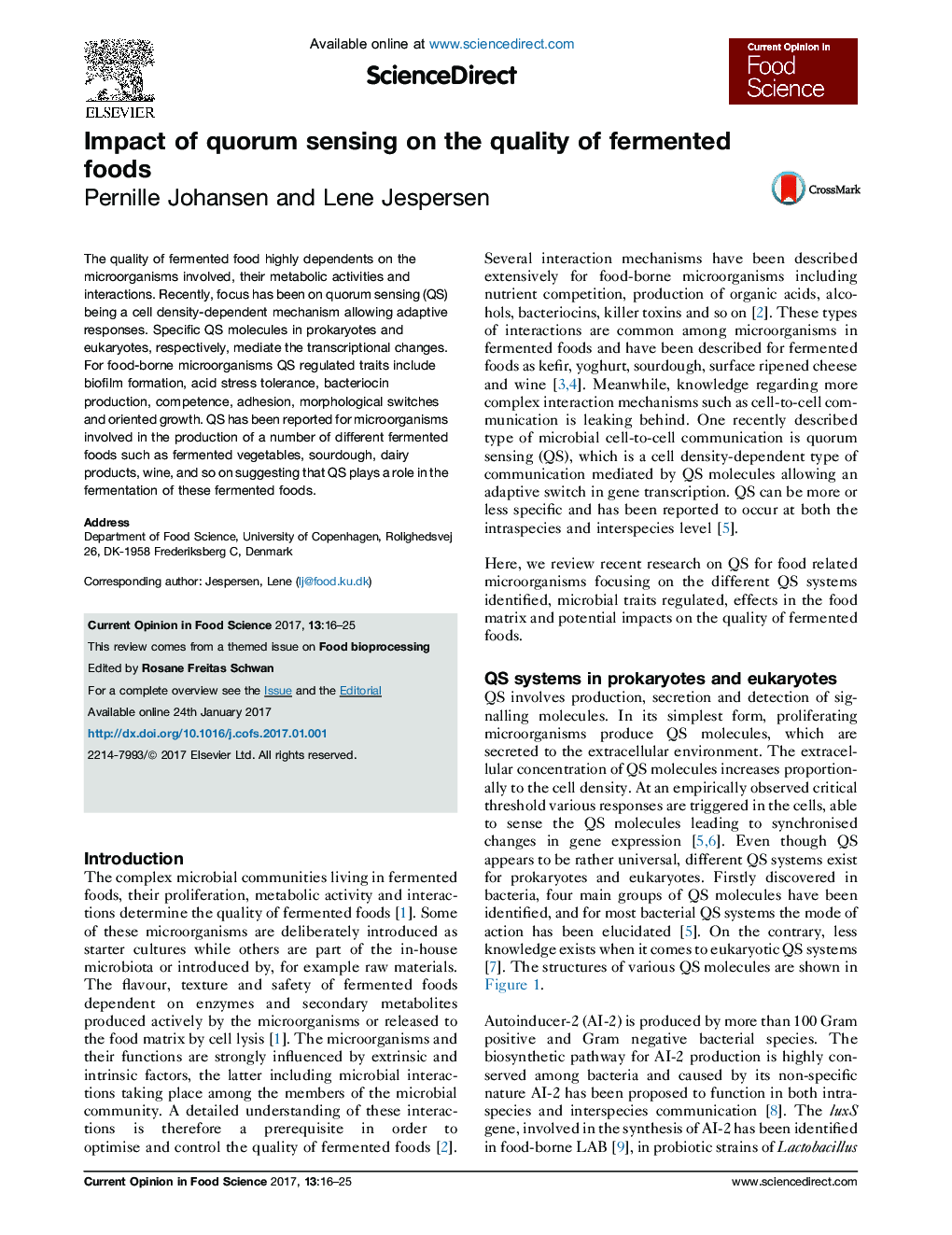| Article ID | Journal | Published Year | Pages | File Type |
|---|---|---|---|---|
| 5520931 | Current Opinion in Food Science | 2017 | 10 Pages |
â¢Different quorum sensing (QS) systems are identified in food-borne prokaryotes and eukaryotes.â¢Important QS traits include biofilm formation, acid shock resistance and morphological changes.â¢QS has been detected in microorganisms involved in various fermented foods.â¢Modulating QS could play a role in the optimisation of the quality of fermented foods.
The quality of fermented food highly dependents on the microorganisms involved, their metabolic activities and interactions. Recently, focus has been on quorum sensing (QS) being a cell density-dependent mechanism allowing adaptive responses. Specific QS molecules in prokaryotes and eukaryotes, respectively, mediate the transcriptional changes. For food-borne microorganisms QS regulated traits include biofilm formation, acid stress tolerance, bacteriocin production, competence, adhesion, morphological switches and oriented growth. QS has been reported for microorganisms involved in the production of a number of different fermented foods such as fermented vegetables, sourdough, dairy products, wine, and so on suggesting that QS plays a role in the fermentation of these fermented foods.
